Speaker
Description
Number of tourist who visit Central Asia was increasing during the last decades. Covid-19 pandemic with restrictions and geological challenges of 2022 come with changes in the current situation.
Tourism is considered as one of the areas for government reforms in order to provide further economic expansion of the country. Uzbekistan tourism receipts increased until 2018. In 2017 tourism receipts were 835 million US dollars, indicating 44.21% increase comparing with 2016. Year 2018 was even more promising increase – 57% compared with 2017, bringing 1,314 million US dollars income from tourism industry. In the year 2019 the increase was continuing, bringing to the country foreign currency in 1,679 million US dollars, positive increase 27.78% comparing with 2018. Covid-19 pandemics changed the tendency for 2020, tourism receipts decreased by 76.47%, to 395million US dollars income from tourism industry. With ease of Covid-19 pandemic restrictions, number of foreign tourists visiting Uzbekistan almost tripled from 1.88 million in 2021 to 5.2 million in 2022. Current foreign tourist flow has not yet reached the 2019’s pre-pandemic level of 6.75 million. Uzbekistan’s exports of tourism services reached 1.6 billion US dollars in 2022. Still the projection is to have risen of foreign tourists to 7 million visitors by 2024, and the annual foreign currency earnings from foreign visitors will reach as much as 2,5 billion US dollars. What should be done to reach such optimistic forecast? Country has to continue to work on international and local transportation connections, improve payment solutions for foreign tourists, continue to develop appropriate hotels for foreign tourists, provide countrywide information for tourists in English and other languages.
*This research was supported by a Marie Curie Staff Exchange within the Horizon Europe Programme (grant acronym: CARSI, no: 101086415)

